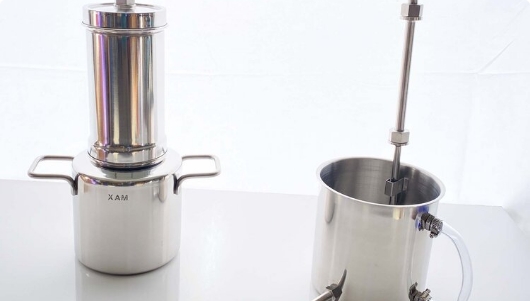Eucalyptus Uses, Benefits and Safety

Eucalyptus plant was used traditionally as antiseptic and for the treatment of respiratory disease. It helps for treating colds, flu, sore throats and chest infections including bronchitis and pneumonia. Eucalyptus has been long time used for wound healing thanks to its antimicrobial benefits. That is believed from its active compound of cineol. Cineol, also called 1,8-cineol, is the major chemical in eucalyptus essential oil. In this video, I will talk about top five benefits of eucalyptus essential oil and three common ways to use eucalyptus. I will also explain which parts of the plant to be used, leaf, stem, flower or fruit. Give a brief explanation of difference between the eucalyptus species. Side effects you should be careful when use eucalyptus.
Eucalyptus is evergreen tall tree native from Australia and Tasmania. It has 900 species and subspecies. The Eucalyptus globulus is the most popular species introduced worldwide, becoming largely cultivated in the subtropical and Mediterranean regions.
Different species generally have same group of phyto chemicals, but they also have differences in their distribution and benefits. Eucalyptus globulus has major chemical of cineol which takes about 80%. Eucalyptus citriodora has much higher concentration of pinene and citronellal.
1,8-cineole, α-pinene, β-pinene and limonene are responsible for antimicrobial activity. 1,8-cineole also presents anti-inflammatory activity.
Now let’s talk about the top 5 benefits of eucalyptus essential oil
1, Anti-inflammation
Eucalyptol, 1,8-cineole, is a strong inhibitor of cytokines that might be suitable for long term treatment of airway inflammation in bronchial asthma and other steroid-sensitive disorders. In a double-blind, placebo-controlled trial, the anti-inflammatory activity of eucalyptol was evaluated in patients with severe asthma suggesting its efficacy and a new possible use as mucolytic agent in upper and lower airway diseases.
2, Antioxidants
Free radicals cause a lot of disease in our body including inflammation, aging, and cancers. Antioxidants play critical role in eliminating free radicals. Among the various tree species, the essential oil from Eucalyptus globulus has the highest antioxidant activity. Essential oil can be extracted from leaf, branches, flower and fruits. It is proved that the essential oil extracted from the leaves possesses strong antioxidant activity.
When you are making eucalyptus essential oil and hydrosol, choosing leaf is not a bad choice.
3, Antidiabetic
Eucalyptus globulus exhibits anti-diabetic properties. The intake of eucalyptus in a fixed amount or concentration of 2.5 g/litre in drinking water in diet can help to reduce hyperglycemia.
In a mouse study, it was observed that an aqueous extract of eucalyptus increased integration of glucose into glycogen by 90%, glucose oxidation rate by 60% and glucose transport by 50%.
More clinical study is necessary to prove its efficacy for human use.
4, Anticancer
The anticancer property of eucalyptus oil is due to the presence of bioactive compounds such as terpinen-4-ol, α-pinene and. γ-terpienene.
The anticancer properties of terpinen-4-ol were studied on human cell lines induced with tumor conditions. It was observed that terpinen-4-ol inhibited the growth of colorectal, pancreatic, gastric and prostate cancer in a dose-dependent manner (0.005–0.1%). However more clinical studies are needed to support its uses as anticancer agent.
5, Food uses
Fresh leaves were chewed in some parts of South Africa for strengthening the gums.
The European Council has approved the use of eucalyptus oil at a concentration of 5 mg/kg or below in foods and 15 mg/kg or below in the candies.
The use of volatile oils and their constituents in candies and soft drinks may enhance flavor and increase the shelf life of products by the elimination of microbial growth. The consumption of eucalyptus containing candies and chewing gums can help to reduce the microbial count of the oral cavity.
Many studies proved the use of eucalyptus essential oil to increase the shelf life of cheese, yogurt, pork and fruit juices.
Moreover, eucalyptus extract also features in creams and ointments aimed at relieving muscle and joint pain, protect skin health, and ease stress and anxiety.
Let’s move on to the extraction ways
1, Decoction
Study found the aqueous extract of eucalyptus contains the high total phenol contents, total flavornoid contents, and antioxidants. The leaves of eucalyptus were boiled to prepare tea in various parts of India and South Africa which was used as a cure to cold, sore throat, flu, fever and a remedy for diabetes.
2, Distillation
The volatile compounds present in leaves and shoots are 1,8-cineole (eucalyptol), citronellal. A study showed that shade-dried samples produced the highest oil yield and 1,8-cineole content, and the highest percentage of 1,8-cineole was obtained using water and steam distillation methods.
Use eucalyptus hydrosol as mouth wash or diluted in water for drinking. But when use eucalyptus essential oil, always diluted it before using topically. Oil is not recommended for internal uses.
Safety
Eucalyptus oil is safe only in the small concentrations of 0.05–0.02 ml a day and the higher dosages can cause diarrhea, headache, nausea, and stomach pain.
The oral intake of eucalyptus essential oil at a concentration of more than 3.5 ml/day can be fatal. Be very careful when used internally.
The direct use of the essential oil on the skin can irritate. It is recommended to apply the eucalyptus oil in the diluted form.
Due to all these factors, it is recommended to keep it away from the reach of children.






Responses